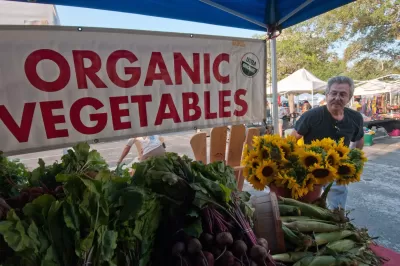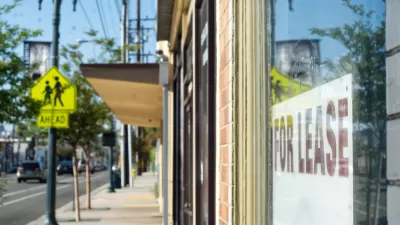As peak harvest season approaches, about a third of small farmers expect that their short-chain food business will not survive to continue production in 2021.

In an interview with chef and restaurant co-owner Dan Barber, Karen Stabiner examines the state and fate of small farmers, and what consumers can do to support them and reshape U.S. food culture. According to a recent survey of 240 farmers conducted by Barber and Stone Barns Center for Food and Agriculture, between 30% and 40% of farmers predict that a potential 50% decrease in sales at restaurants and farmers' markets, and bankruptcy by the end of 2020.
Alternative means for selling produce like boxes and delivery, while successful in the short-term, won't be a solution in the summer during peak harvest. Farmers can't sustain the volume and pay for the cost of labor, reports Stabiner. If farmers' fears of bankruptcy are realized, many will not recover. "If they’re right, the virus will take out much of a generation and leave the market ripe for takeover by larger operations," writes Stabiner.
"This is a moment for standing up and digging in for what we want, and not allowing big food to take the market back," Barber says. Right now, that includes calling in all forces to help with the summer harvest, including out of work restaurant employees. Barber's vision includes a redefinition of the 'farm to table' framework where farmers and restaurants work together to prepare the harvest on a local scale.
Barber reminds consumers to vote with their dollars by supporting local farmers and restaurants that enable this vision of a redefined food culture and find innovative ways to get farmers' food on the table.
FULL STORY: Nearly a third of small, independent farmers are facing bankruptcy by the end of 2020, new survey says

Maui's Vacation Rental Debate Turns Ugly
Verbal attacks, misinformation campaigns and fistfights plague a high-stakes debate to convert thousands of vacation rentals into long-term housing.

Planetizen Federal Action Tracker
A weekly monitor of how Trump’s orders and actions are impacting planners and planning in America.

San Francisco Suspends Traffic Calming Amidst Record Deaths
Citing “a challenging fiscal landscape,” the city will cease the program on the heels of 42 traffic deaths, including 24 pedestrians.

Defunct Pittsburgh Power Plant to Become Residential Tower
A decommissioned steam heat plant will be redeveloped into almost 100 affordable housing units.

Trump Prompts Restructuring of Transportation Research Board in “Unprecedented Overreach”
The TRB has eliminated more than half of its committees including those focused on climate, equity, and cities.

Amtrak Rolls Out New Orleans to Alabama “Mardi Gras” Train
The new service will operate morning and evening departures between Mobile and New Orleans.
Urban Design for Planners 1: Software Tools
This six-course series explores essential urban design concepts using open source software and equips planners with the tools they need to participate fully in the urban design process.
Planning for Universal Design
Learn the tools for implementing Universal Design in planning regulations.
Heyer Gruel & Associates PA
JM Goldson LLC
Custer County Colorado
City of Camden Redevelopment Agency
City of Astoria
Transportation Research & Education Center (TREC) at Portland State University
Jefferson Parish Government
Camden Redevelopment Agency
City of Claremont





























